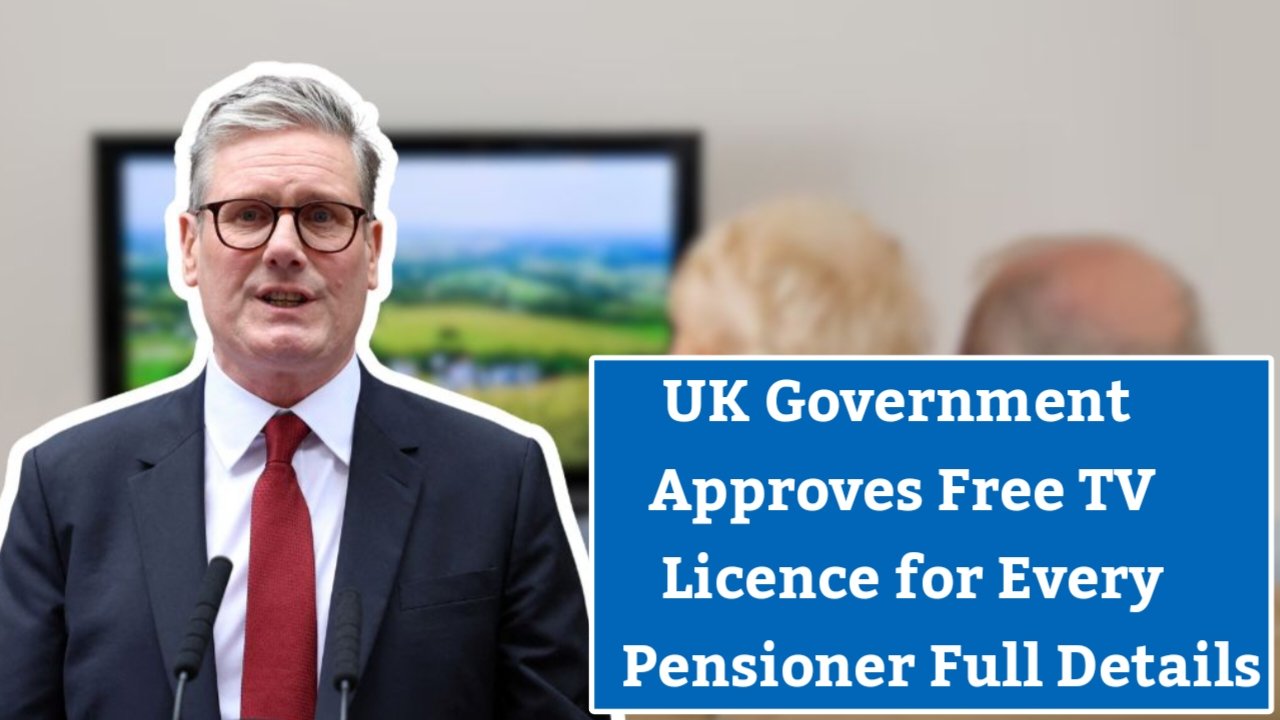UK Government Approves Free TV Licence for Every Pensioner – Full Details In a significant policy shift announced in October 2025, the UK Government has confirmed that starting from April 2026, all pensioners aged 65 and above will be eligible for a free TV licence. This move marks a reversal of the previous means-tested system and aims to alleviate financial pressures on older citizens.
What Is a TV Licence and Why Is It Required?
A TV licence is a legal requirement for watching or recording live television broadcasts in the UK, whether via BBC iPlayer, Sky, Freeview, or other streaming platforms. The standard annual fee for a colour TV licence is £174.50, with a black and white licence costing £58.50 as of April 2025.
Who Is Eligible for the Free TV Licence?
Under the newly approved policy, all pensioners aged 65 and above will be eligible for a free TV licence starting from April 2026. This means they will no longer have to pay the £174.50 annual fee charged to UK households for accessing live TV or BBC iPlayer.
Key Highlights of the New Policy
- Automatic Eligibility: Every UK citizen aged 65 or above qualifies automatically.
- No Application Required: Pensioners will no longer need to apply for exemptions through complex forms.
- Coverage for All Residents: The free licence will cover everyone living at the address.
Comparison: Previous vs. New TV Licence Policy
| Feature | Previous Policy (Post-2020) | New Policy (Effective April 2026) |
|---|---|---|
| Age Requirement | 75 and above | 65 and above |
| Means-Tested | Yes (Pension Credit required) | No |
| Application Process | Required | Not required |
| Coverage | Only the individual receiving Pension Credit | All residents at the address |
| Annual Fee | £174.50 for a colour TV | £0 |
Why Was the Change Necessary?
The previous system, implemented in August 2020, limited free TV licences to those aged 75 and over who received Pension Credit. This policy faced criticism for excluding many pensioners who were still struggling financially but did not meet the strict criteria. The new policy aims to provide broader support to older citizens, acknowledging the rising living costs and the need for financial relief.
How Will the Free TV Licence Benefit Pensioners?
- Financial Relief: Pensioners will save £174.50 annually, which can be redirected to other essential expenses.
- Simplified Process: The automatic eligibility removes the need for complex applications.
- Inclusive Coverage: All residents at the address benefit from the free licence, not just the pensioner.
Additional Support for Pensioners
Pensioners may also be eligible for other forms of financial support, including:
- Pension Credit: A means-tested benefit that tops up weekly income.
- Winter Fuel Payment: Assistance with heating costs during winter.
- Council Tax Reduction: Discounts on council tax bills.
- Help with NHS Costs: Assistance with dental treatment, glasses, and transport costs for hospital appointments.
These benefits aim to ease the financial burden on pensioners and improve their quality of life.
How to Apply for a Free TV Licence
Pensioners aged 65 and above will be automatically eligible for the free TV licence starting from April 2026. There is no need to apply; the system will update to reflect the new policy. However, it is advisable to check the official TV Licensing website for any updates or changes to the process.
Impact on the BBC and Licence Fee Revenue
The BBC funds the free TV licences for pensioners. With the expansion of the free licence scheme, the BBC will need to allocate additional resources to cover the increased number of eligible recipients. This may impact the BBC’s revenue and its ability to fund other services.
Public Reaction and Political Implications
The announcement has been met with widespread approval from pensioner groups and advocacy organisations. Many view the move as a positive step towards supporting older citizens. However, some critics argue that the policy does not go far enough and that further measures are needed to address the financial challenges faced by pensioners.
Future Considerations
While the new policy provides immediate relief, ongoing discussions about the sustainability of the TV licence fee and the BBC’s funding model continue. Future governments may need to consider alternative funding mechanisms to ensure the continued provision of public broadcasting services without placing undue financial strain on pensioners.
Conclusion
The UK Government’s decision to provide free TV licences to all pensioners aged 65 and above is a significant policy change aimed at supporting older citizens. By eliminating the means-testing process and automatically granting eligibility, the government acknowledges the financial challenges faced by pensioners and takes steps to alleviate their burden. As the policy is implemented in April 2026, it is expected to have a positive impact on the lives of many pensioners across the UK.
